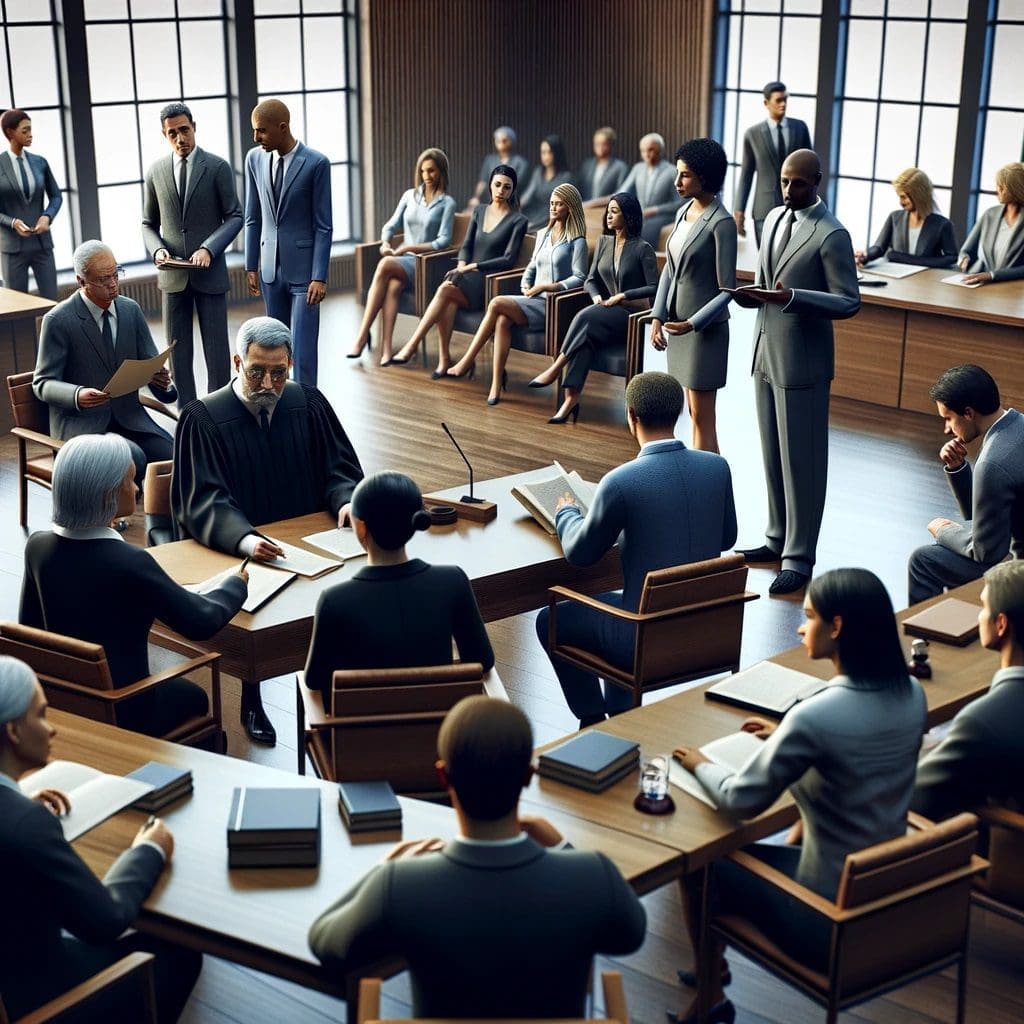How Lawyers Prepare Clients for Important Hearings
Navigating the complexities of a court hearing can be daunting, whether you’re facing a civil lawsuit or a criminal charge. Understanding the legal landscape and preparing effectively for your day in court is crucial for achieving a favorable outcome. This comprehensive guide will delve into the essentials of preparing for a court hearing, offering strategic advice and practical tips to ensure you are well-equipped to handle the proceedings.
A court hearing is a critical juncture in any legal process, serving as the platform where parties present their cases before a judge or sometimes a jury. The stakes are high, and the outcome can significantly impact your life. Therefore, grasping the nuances of court procedures, legal rights, and effective representation is paramount.
Preparing for Your Hearing
Preparation is key when approaching a court hearing. Start by gathering all necessary documents related to your case, such as contracts, correspondence, and any evidence that supports your position. Organizing these materials systematically can bolster your case, making it easier for your legal counsel to navigate and present arguments effectively.
Understanding the legal framework surrounding your case is also essential. Laws and regulations vary widely depending on whether you’re involved in a civil dispute or facing criminal charges. Familiarizing yourself with the relevant statutes and legal precedents can provide valuable insights into your case‘s potential trajectory.
Legal Representation
Securing competent legal representation is crucial for navigating the complexities of a court hearing. An experienced attorney can offer invaluable guidance, from formulating a robust legal strategy to advocating on your behalf in the courtroom. When selecting a lawyer, consider their expertise in the specific area of law relevant to your case, as well as their track record in court.
Know Your Rights
An understanding of your legal rights is fundamental when facing a court hearing. This includes knowing your rights to legal representation, the right to remain silent in criminal cases, and the right to present evidence and call witnesses. Being informed about these rights can protect you from potential procedural missteps and strengthen your position in court.
The Importance of Witnesses and Evidence
Witnesses and evidence play pivotal roles in the outcome of a court hearing. Compelling evidence can sway the proceedings in your favor, whether it’s documentary proof, physical evidence, or expert testimonies. Identifying and preparing witnesses who can corroborate your claims or provide expert insights into technical aspects of your case is equally vital.
Courtroom Etiquette
Understanding and adhering to courtroom etiquette can significantly impact the judge’s and jury’s perception of your case. This includes dressing appropriately, addressing the court respectfully, and following procedural rules. Demonstrating respect for the court and its protocols can positively influence the proceedings.
Mental and Emotional Preparation
A court hearing can be a stressful experience, making mental and emotional preparation essential. Techniques such as mindfulness, meditation, or speaking with a counselor can help manage stress and maintain a clear focus during the hearing. Staying composed under pressure is crucial for effectively communicating your case and responding to the opposing party’s arguments.
The Day of the Hearing
On the day of the court hearing, arriving early can help you acclimate to the courtroom environment and confer with your legal team. Reviewing your notes and the key points of your case will keep the information fresh in your mind, ready for presentation. Remember, the outcome of a court hearing can hinge on the smallest details, so thorough preparation and a calm, focused demeanor are your best allies.
Conclusion
A court hearing represents a decisive moment in any legal dispute or criminal case. By thoroughly preparing, understanding your legal rights, securing experienced legal representation, and adhering to courtroom etiquette, you can navigate the process with confidence. Remember, the goal is not just to present your case but to do so compellingly and convincingly, maximizing your chances of a favorable outcome.
While the journey through the legal system can be challenging, equipping yourself with the right knowledge and resources can make all the difference. With careful preparation and a strategic approach, you can face your court hearing with assurance, ready to advocate for your rights and interests.
- Preparing for Your Court Hearing | Strategies for Success
- Court Hearing Preparation Checklist – Manifestly Checklists
- Preparing for Court | LawHelp.org | Find free legal help
- How to Prepare for Court: Essential Tips for Success
- 7 Tips for Winning Cases – Douglas R. Beam, PA














